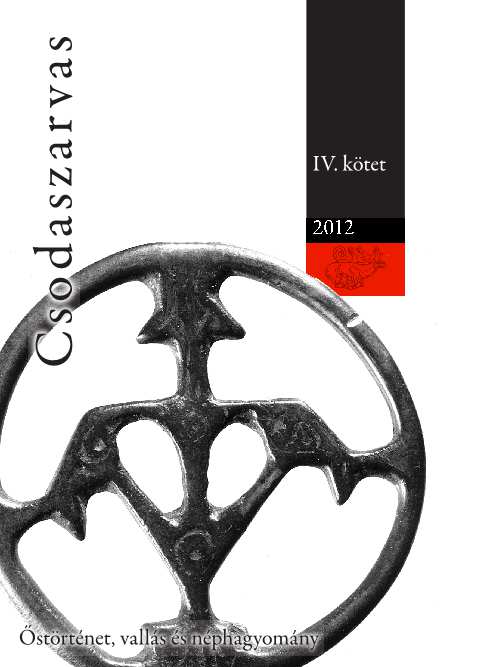
We kindly inform you that, as long as the subject affiliation of our 300.000+ articles is in progress, you might get unsufficient or no results on your third level or second level search. In this case, please broaden your search criteria.

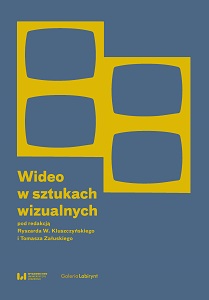


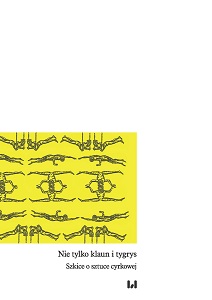
The purpose of the paper is to present actions of the social campaign ‘Circus Without Animals’. More than twenty pro-animal associations from Poland (among others, Basta!, Viva!, and Empatia) established a coalition primarily focused on implementation of a legal ban on the use of animals in circuses in our country. Such solutions have already been introduced in several countries around the world as a result of the impact of civic initiatives. In Poland we still have no comprehensive solutions, however there are a lot of local initiatives in particular cities (for example, the Board of Education in Łodź forbade distribution of tickets to circuses in schools). The coalition, using the slogan ‘We trumpet against circuses’, is involved in educational activities (addressed mainly to children and youth, making up the majority of the circus audience), informing people about feelings and intelligence, but also about suffering of animals used for human entertainment.
More...
What is the circus? The paper is an attempt to define the phenomenon. It refers among others to the Olimpic Circus dating back to the times of Mickiewicz. Next, the melodrama in 3 acts, "Jocko, brasilian monkey" (1825) is being analysed. It was a great stage hit of the 19th century, translated into Polish by Jozef Damse. The Polish premiere was held in the National Theatre in Warsaw (1928), where the monkey’s role was played ‘brilliantly’ by a dancer Heinrich Springer. During a long career of the drama, Stanisław Krzesiński’s acting was also excellent, including the performance on the stage of Stary Theatre in Lublin (for J. Frołowicz’s benefit concert, probably in 1829). The name of the actor looking like a monkey was camouflaged on the poster under ‘three asterisks’.
More...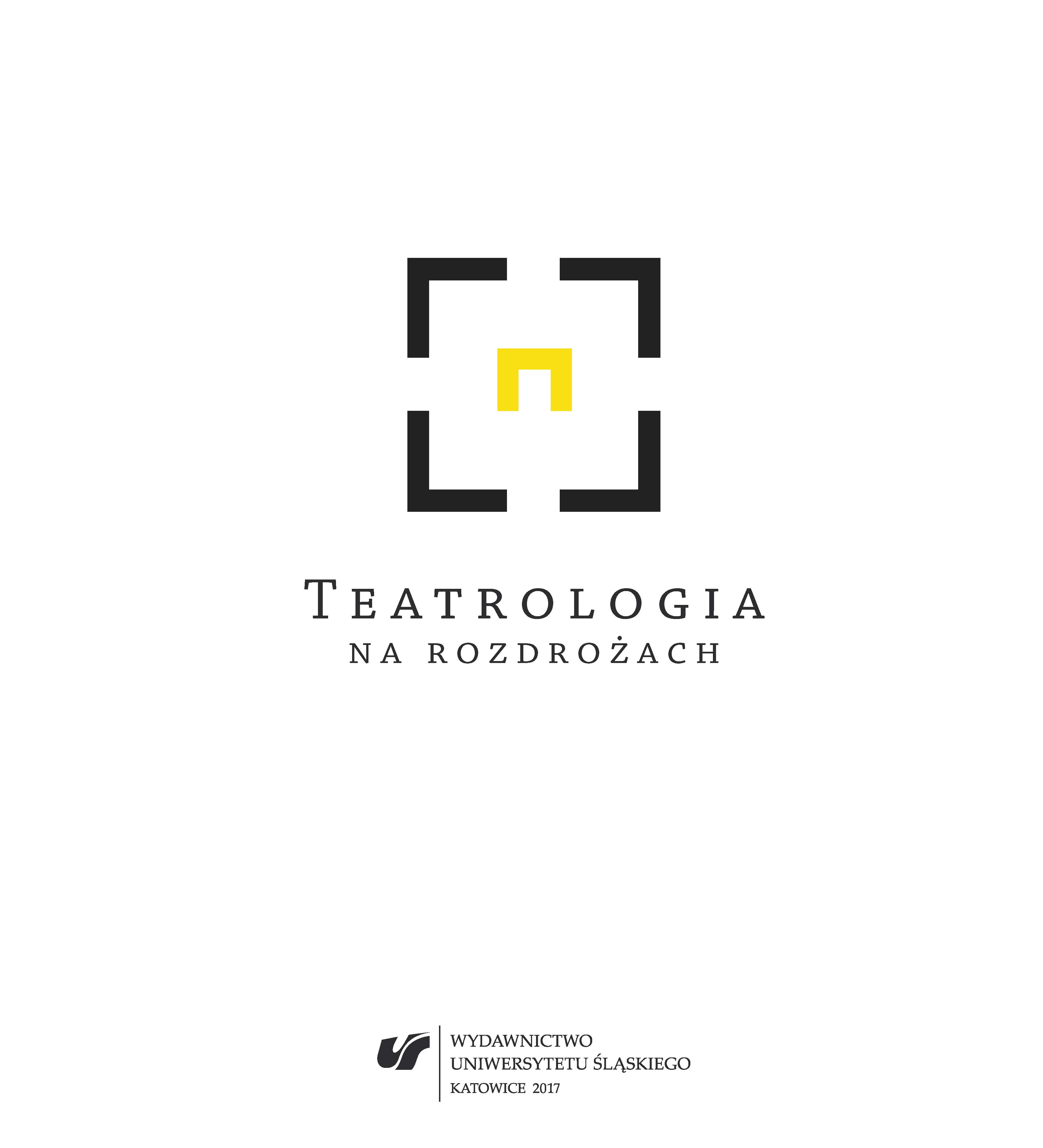

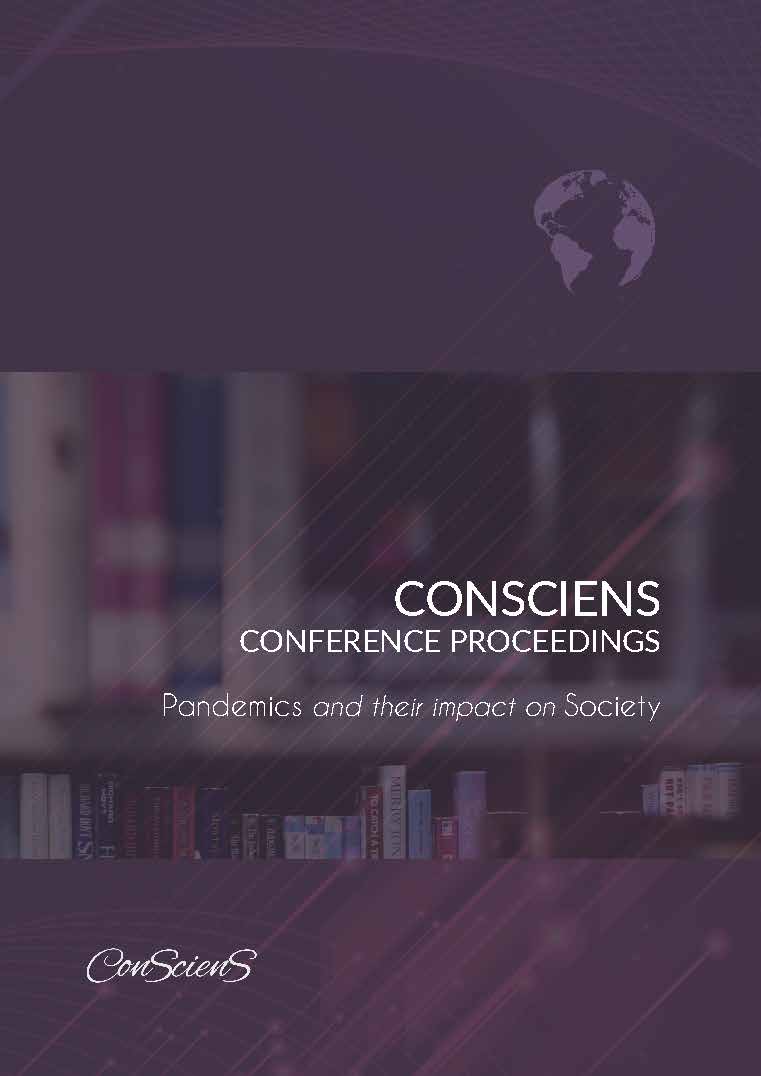
Unfortunately, this year will see a complete different organization of the 23rd edition of the concert in Melpignano, Puglia; it will be held behind closed doors, due to the pandemic that has had a stark impact worldwide, precisely as it strongly affected most regions of Italy. Therefore, the concert will be broadcast on the Italian channel Rai 2 on Friday 28th August at 10.45 pm. The musical performance is a symbol of a tribute paid to the traditional music of Salento. The renowned composer Paolo Buonvino, along with, will bring joy to their viewers admiring the performance from home by including an emotional soundtrack, as the concert takes inspiration mainly from both various musical traditions and the current situation in Salento, thus the two musicians strive to encapsulate the image of people’s misfortunes over the past few months, during lockdown, as everyone seems to have forgotten how to smile lately. Moreover, the accompaniment will also cover a mixture of popular customs of the pizzica dance and the world of cinematography. Two notorious orchestras will be performing from the stage of Melpignano, namely the Orchestra Popolare “La Notte della Taranta” and the Orchestra Roma Sinfonietta. The decision to postpone the live performance of the festival was made in order to avoid further transmission of the COVID-19 virus. At the same time, the festival is dedicated to the lion-hearts who fight against the viral disease. The final concert will be held three years from now, in 2023.
More...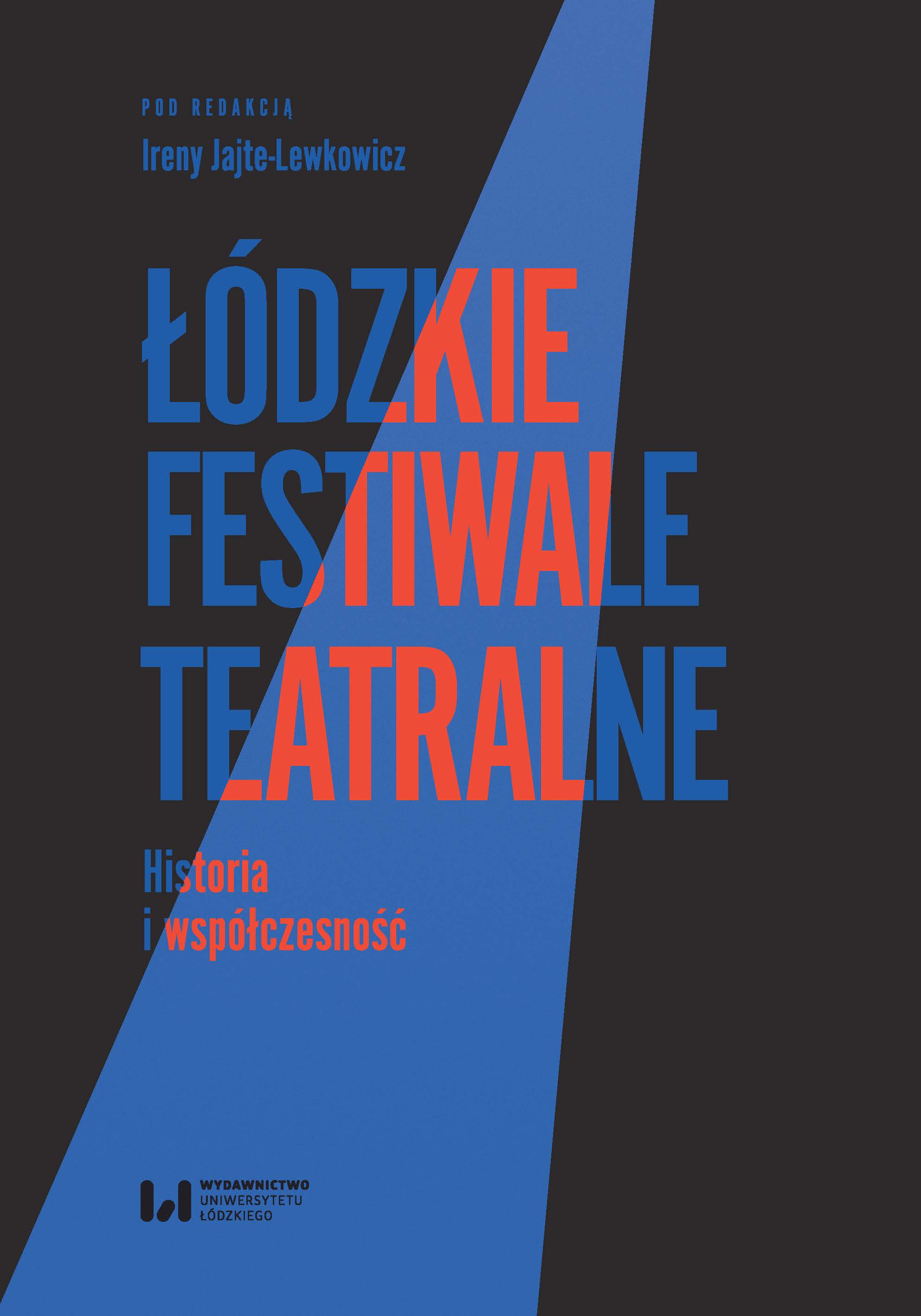
The article discusses the history of the creation and development of the Festival of Dialogue of Four Cultures, eight editions of which were held in Łódź in 2002–2009. The festival, initiated by Witold Knychalski, was devoted to the idea of reviving the image of Łódź as a multicultural city, which for many years was a meeting place for four cultures – Polish, Russian, Jewish and German. Many great artists from many countries of the world took part in the festival, presenting their works representing various fields of art in cultural institutions and historic spaces of Łódź.
More...
The "Meetings" festival, organized by the Łódź Theater Meetings Foundation, was held three times in Łódź. The Foundation put the main emphasis on the aspect of meeting and exchanging experiences between young independent theater and theaters with many years of experience. An important place was also discussed on new forms and the language of the theatrical alternative. The first edition, which took place in 2010, was to a large extent a manifestation of support for this formula of the festival - all theaters took part in the festival for free. The next two editions, carried out at the Szwalnia Theater in Łódź, were focused on activities on the border of art, often touching on social issues.
More...
The article aims to present the history of the Review od the Amateur Theaters called “ŁóPTA”. This project has been in existence for over 30 years. The event presents the latest projects of amateur and indepentdents theaters from Łódź and other regions of Poland. The review shows the presence of young acting groups, as well as those with large theatrical output that have been working in the country for many years. The next part of the article presents the figure of Marian Glinkowski – called a “human institution,” organizer of theatrical life, a very well-known and valued figure in the independent theater. Formerly director of the Łódź Cultural Center, co-founder of the Łódź Theater Meetings, coordinator of ŁÓPTA. The rest of the article focuses on the differences between amateur and professional theater. Performances and their diversity will be the main topic of the article. It will explain how the how the reality of Poles, our history and current political events shaped the subject matter of the presented and exhibited works. ŁóPTA is an event created on the threshold of great political and cultural changes in Poland, during all the years of its existence, carefully accompanying these changes.
More...
The article presents the history of the International Festival of Plays Pleasant and Unpleasant, held at the Powszechny Theatre in Łódź. The authors described the history and changes of Festival and presented its repertoire line and accompanying cultural events in the years 1994–2016.
More...
In the article author focuses on a problematic, not chronicle, description of the Festival of Theatre Schools, organized since 1983 by Film School in Lodz in cooperation with the most important Polish theatre schools. In spite of problematic approach to topic, author has pointed out the most important organizational and artistic elements of festival. Aim of the article is to critically analyze formula of this event as a celebration and competition. For the purpose of this article author made an interview with actress, in which the character and specificity of this festival is most intensely expressed.
More...
In the years 1999–2016 Arlekin Puppet Theatre was organiser of three festivals: International Festival of Solo Puppeteers, Festival of Street Art “TrotuArt” and AnimArt Festival – The International Festival of Animation Art. Text presents the festival’s assumptions and repertoires. Author analyses the influence on the local and artistic communities and comments the communication strategies – in organisers own materials and press publications.
More...
One of the most numerous groups in Poland, with almost a hundred thousand people, whose access to art has been difficult or limited over the years, are undoubtedly people with visual impairments. There is no need to convince anyone that participation in artistic events has an extraordinary power to connect people, develop their creativity and that it teaches openness to others. Similarly, there is no dispute about the beneficial influence of art to the process of rehabilitation and revalidation of people with disabilities. Nevertheless, blind people are still forced to stand up for equal rights in cultural institutions. Looking at this issue, we can easily see that people with poor eyesight and blind in Poland gained access to the world of theatre and film only at the beginning of the new century. In November 2006, the first Polish film screening with audio description delivered live by a voice-over was organized. A year later the first Polish theatre performance with audio description was held. The article is devoted to the blind in the world of spectacles, discussing the problem in the context of the project unique in Europe – The Reading Theatre for people with poor eyesight and blind, implemented for over a decade by Powszechny Theatre in Łódź. The textpresents the characteristics of the project, its original form, as well as a detailed description of sample premieres realized as part of the series, statements by the creators and its originator – director Ewa Pilawska.
More...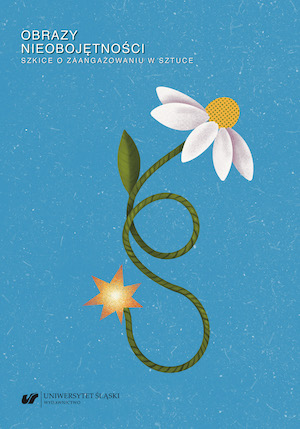
The aim of this article is to define embodied reportage in the context of body art. The author situates self-reportage by Norah Vincent, Ted Conover and Yoram Binur in the field of performative literature as she perceives in it the features of delegated performance. The embodied reportage is considered as a modern variant of the experimental novel based on the human document.
More...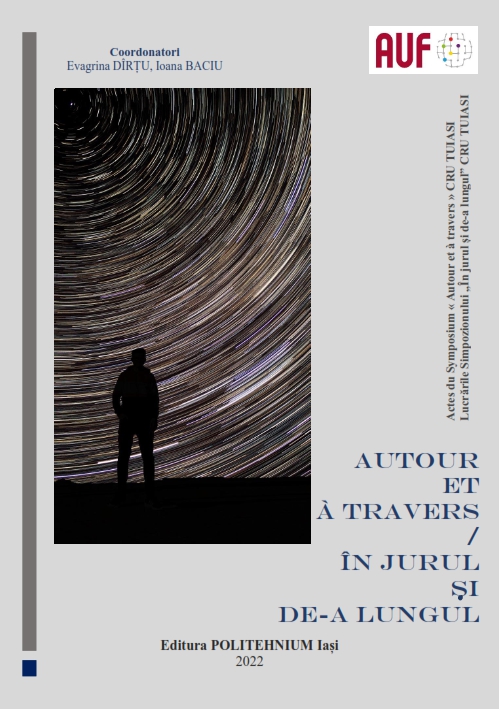
In Tunisia, as in the Maghreb, the ancient performing arts consist mainly of instrumental vocal music, theater, sung poetry and other forms of oral and bodily expression including music, the art of speech and storytelling, and Sufi dances. These artistic forms cover many cultural expressions that constitute the intangible cultural heritage of each country. Among these sacred ancestral forms, we cite La Hadhra, which is a show based mainly on Sufi songs accompanied by dance movements. This show, originally sacred, continues to be adapted by several Tunisian artists in order to modernize it and bring it to the taste of the public. This modernization occurs mainly through the addition of new scenic, aesthetic and musical elements which leads us to witness the passage of the Hadhra from ritual to spectacular.
More...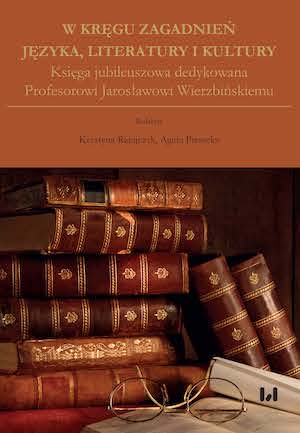
The article attempts to trace the influence of German drama and theatre on the theatrical thought and practice of the Ukrainian director Les Kurbas. His writings provide much evidence that he was very well versed in contemporary German drama and theatre. Using this knowledge, however, he wanted to transform it into his own stage solutions. Kurbas’s artistic independence was shown using the comparative method. The performance of “King Oedipus” directed by Max Reinhardt and Kurbas is compared. The basic materials come from the extensive edition of Les Kurbas’s theatrical writings in Polish.
More...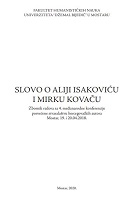
The text briefly talks about the ballad Hasanaginica, furthermore about the play Hasnaginica by Alija Isaković, and finally, and with more details, about its performance in Paris. In the Atelier Theater in the Serbo-Croatian (BCHS) language which operated at the University of Paris IV-Sorbonne we set up Isaković’s Hasanaginica in 1999. Isaković’s drama had its premiere under the translated title La femme de l’aga Hasan on the April 14 at 19:30. Nex day it was stayed in the magnificent building of the Grand Palea, in front of a large audience, of different profiles and languages. The text that follows is a brief account of this show.
More...